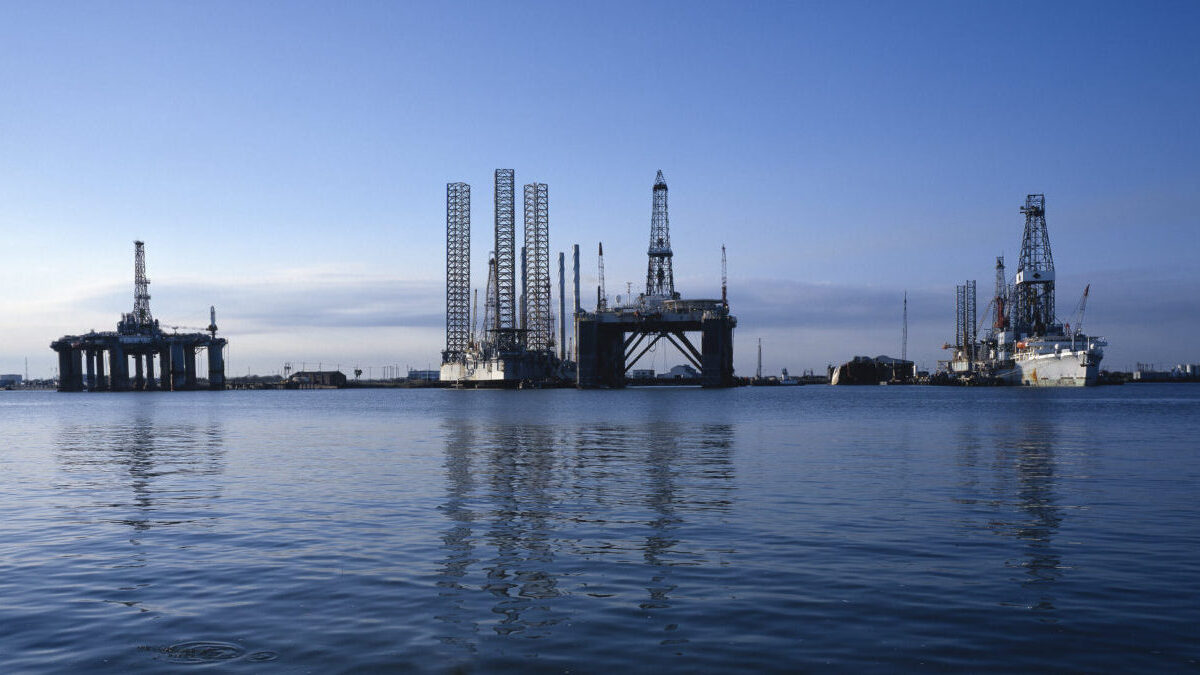Using litigation to achieve policy ends has become a tried and true tactic in political and advocacy fights. However, in recent years, climate activists have used the courts as a weapon to attack large energy companies — essentially leveraging the legal system as a proxy to win a war of public opinion. Nowhere is this form of “lawfare” more pronounced than in the raft of climate litigation facing energy producers.
In fact, the group of states and municipalities looking to pin financial blame for climate change on energy companies could be reaching a critical turning point. In the near term, President Joe Biden’s solicitor general, Elizabeth Prelogar, will file a brief to the Supreme Court that could offer a position on the jurisdiction under which climate lawsuits should fall: federal or state courts. The opinion could be pivotal in determining whether plaintiffs can use friendly local venues to penalize or seek payouts from those who produce the energy America needs.
However, climate lawsuits are not just about money. Such suits have flowed steadily into America’s courts since 2017, and many impact the future of the energy sources we use to power our economy. The counties, cities, and states filing climate lawsuits are not only attempting to pin down fossil fuel producers for alleged harms but also to leverage America’s state and district courts to diminish their standing in the court of public opinion. Leveraging of the judicial system in the name of politics not only threatens the rule of law, but also jeopardizes whether oil and gas will be available when America and its allies need them.
Public pressure campaigns have already led to investment firms divesting from energy producers and pipeline projects, and activism in the media seeks to double down on this. The reputational harm extends well beyond tarnishing a name and limits energy producers’ ability to continue doing their work and make necessary investments for quality equipment and infrastructure maintenance. In other words, the harm of smearing an energy company does not merely affect the energy boardroom, it flows down in higher costs and reliability concerns for our nation.
Many Benefits
Energy production provides tangible benefits to all Americans. First, hydrocarbons are central to powering our economy and creating essential products. In fact, the U.S. Department of Energy notes that Americans use at least 6,000 everyday products manufactured with petrochemicals. That includes cell phones, coffee makers, deodorant, eyeglasses, perfume, shampoo, credit cards, and much more. Even the president admitted in his State of the Union address that oil and natural gas use is not ending anytime soon — albeit trying to hedge with “for at least another decade.”
Second, homegrown fossil fuels ensure America’s energy security and reduce our dependence on less reliable and often untrustworthy foreign countries and companies along with their dirtier product and insecure supply chains. Third, and importantly, energy producers are often the ones paving the way for low- and zero-carbon energy solutions through innovating next-generation technology. Climate lawsuits undermine all these goals.
Suing the Companies that Innovate
Last year, New Jersey’s attorney general filed a lawsuit alleging that energy companies deceived the public over climate change and used that deception to slow the transition from oil and gas to lower-carbon energy sources. However, if New Jersey wants to continue to fund its three offshore wind projects and create more green energy options, it will need traditional energy production for an indefinite transition period. And what is a wind farm without wind turbine blades, products that require oil for their manufacturing?
Similarly, a recent lawsuit filed by Puerto Rican municipalities in November alleges that energy companies not only engaged in deception but also contributed to local hurricane damage on the island. Yet the companies that Puerto Rico is suing helped drive carbon emissions down by 32 percent since 2005 by transitioning from coal to natural gas for power generation. These energy producers are leaders in funding renewable technology such as carbon capture and storage and are significantly investing in the green technology Puerto Rico says it needs to meet its goal of 100 percent renewable electricity by 2050. Again, why sue the companies critical to reaching your own objective?
Casting Energy Producers as Villains
The ironies here show the goal of these lawsuits is bringing litigation to change behavior, not to uphold the rule of law. In reality, plaintiffs do not have to win in court to succeed. By casting energy producers as villains, they advance the dubious narrative that the companies producing the energy the American economy requires are blocking a low-carbon future. As one journalist explained, climate lawsuits are useful tools for special interests because of the “effect the suits could have even before they’re decided in court.” Such suits do not have to prove any actual wrongdoing or legal violations, as long as the “lawfare” they wage degrades the reputation of energy producers.
When policymakers threaten rules and laws, they cause market participants to change course, which further creates distortions in the market. This lawfare is no different. The effects could extend well beyond energy companies getting a bad reputation — we could see less domestic energy production, higher energy prices, more reliance on nations such as Russia and Saudi Arabia, and less green innovation. Not to mention China, India, Russia, and others will continue to pump emissions into the global atmosphere.
Americans continue to need oil and gas. We shouldn’t abide an orchestrated campaign of lawfare to jeopardize America’s energy future. Solicitor General Prelogar’s pending brief must strike a meaningful victory for common sense and not perpetuate this destructive and costly form of litigation currently metastasizing throughout the state and local courts.









